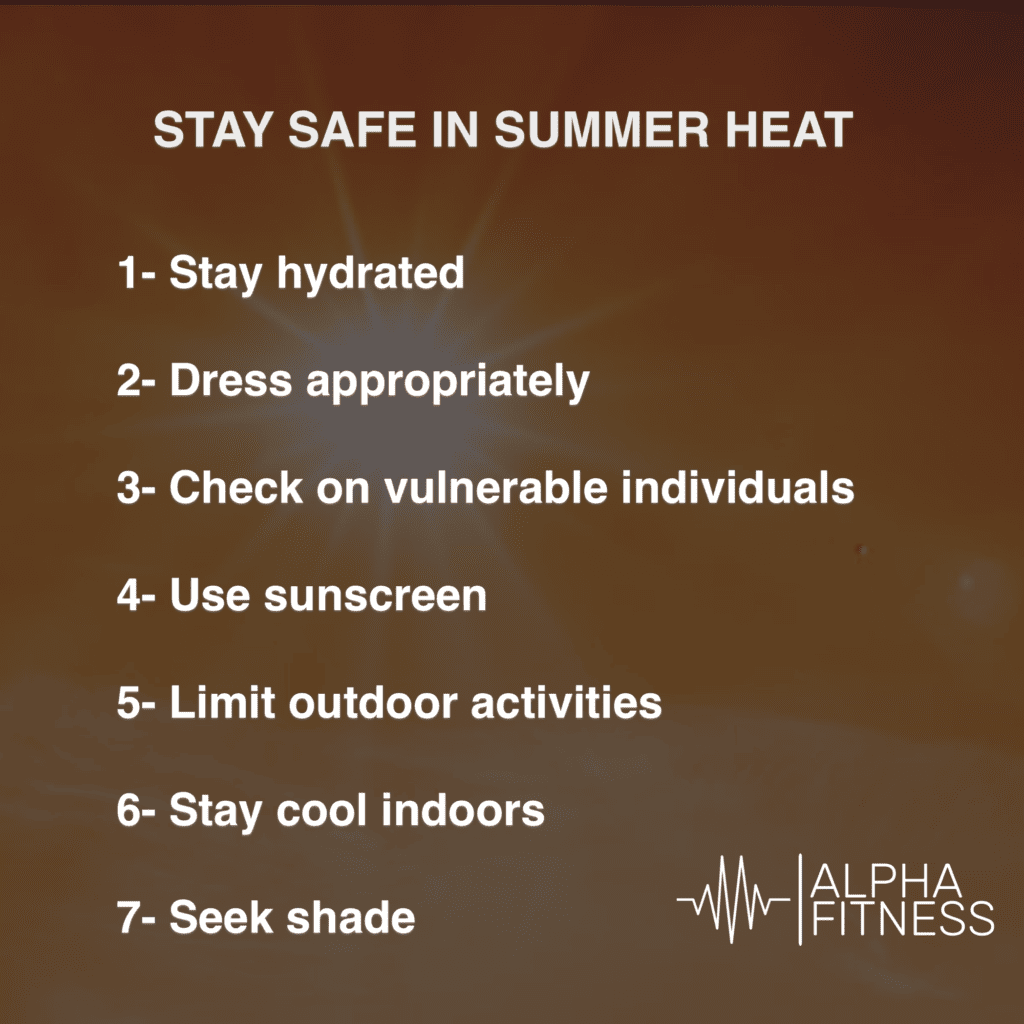
To keep yourself safe in the summer heat, follow these guidelines:
- Stay hydrated: Drink plenty of water throughout the day, even if you don’t feel thirsty. Avoid excessive consumption of alcohol, caffeinated beverages, and sugary drinks as they can contribute to dehydration.
- Dress appropriately: Wear lightweight, loose-fitting, and light-colored clothing to help your body stay cool. Protect your head and face with a wide-brimmed hat and wear sunglasses to shield your eyes from the sun.
- Seek shade: Whenever possible, stay in the shade, especially during the hottest parts of the day, typically between 10 a.m. and 4 p.m. If you’re outside, use an umbrella, canopy, or seek shelter under trees to reduce direct exposure to the sun.
- Use sunscreen: Apply a broad-spectrum sunscreen with an SPF of 30 or higher to all exposed skin, including your face, neck, arms, and legs. Reapply every two hours or more frequently if you’re swimming or sweating.
- Limit outdoor activities: Avoid strenuous outdoor activities during the peak heat hours. If you need to be active, try to schedule your activities for the early morning or late evening when the temperature is cooler.
- Stay cool indoors: If possible, spend time in air-conditioned environments such as your home, shopping malls, libraries, or community centers. Use fans to circulate air and consider taking cool showers or baths to lower your body temperature.
- Check on vulnerable individuals: Keep an eye on children, elderly individuals, and those with chronic illnesses or disabilities as they are more susceptible to heat-related illnesses. Ensure they have access to a cool environment and are properly hydrated.
- Never leave children or pets in a parked car: Even for a short period, the temperature inside a parked car can rise rapidly and become life-threatening. Always take your children and pets with you or make alternative arrangements.
- Be aware of the signs of heat-related illnesses: Familiarize yourself with the symptoms of heat exhaustion and heatstroke. Symptoms may include dizziness, headache, nausea, rapid heartbeat, confusion, and high body temperature. If you or someone else experiences these symptoms, seek medical attention immediately.
- Stay informed: Keep an eye on weather forecasts and heat advisories in your area. Stay updated on any heat-related warnings or precautions issued by local authorities.
Below is a list of useful links:
Remember, staying safe in the summer heat is crucial to prevent heat-related illnesses. By following these tips and being mindful of your body’s needs, you can enjoy the summer while taking care of your health.

Can you be more specific about the content of your article? After reading it, I still have some doubts. Hope you can help me.